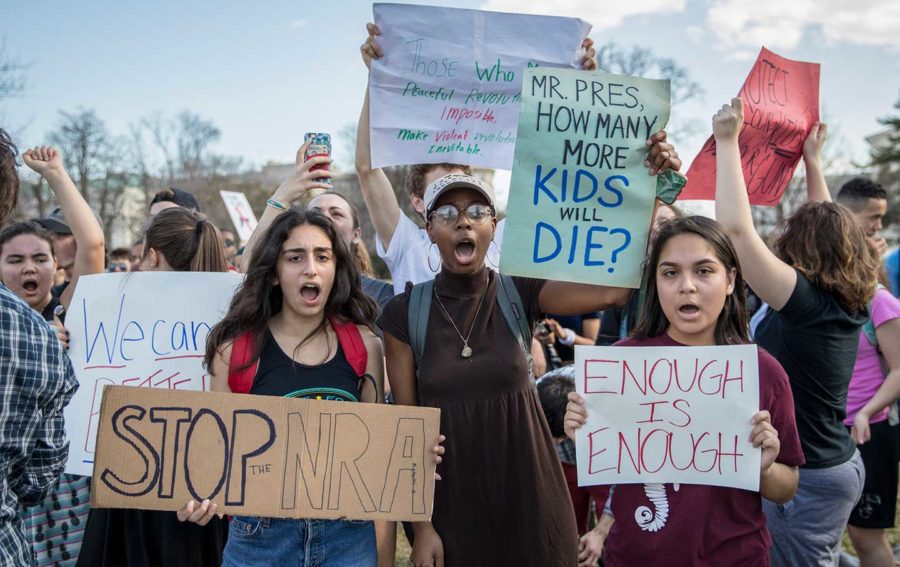The kids are all right
March 1, 2018
According to a 2015 US Bureau of Labor report, millennials will make up 75% of the workforce by 2025. But let me take a step back. What are millennials? Who are they?
According to leading generational experts Neil Howe and William Strauss, anyone born between 1980 and 2004 is considered a millennial. So, I am a millennial, and all current highschool students are also millennials. And even though researchers dispute about who falls into the category of millennials, the younger generation in general is taking over. In just seven years, we will be the majority. So why are our opinions still not taken seriously? The simple answer is the media.
According to Fresno-State journalism professor Tamyra Pierce, the media paints millennials with a broad brush, labelling us as arrogant, narcissistic and technology obsessed. And yes, these labels apply to some millennials. Considering there are over 80 million millennials in the United States alone, there are destined to be people out there who fit these characteristics.
But, these labels aren’t just traits of millennials, they are traits of young people who are growing up and coming of age, regardless of their generation. According to the Washington Post, Boomers, who we now characterize as ambitious and hardworking, were once portrayed as spoiled and reluctant to grow up. Sound familiar?
They’re the same traits used for millennials today. So why, according to the BBC, are millennials the most criticized generation in history? Because the technology that exists today allows for information to spread faster than ever before. All generations have changed the ways in which they obtain information to be faster.
We are saturated with media and able to obtain information in a matter of seconds. When headlines from credible reliable news sources like Time Magazine read “Millennials: The Me Me Me Generation,” it’s easy to fall into the trap of believing these stereotypes.
But what people sometimes fail to remember or even recognize is that the media that supposedly makes millennials, and teenagers in particular “lazy,” is actually how we are revolutionizing social justice and political movements.
Michaela Bethune, the head of campaigns for DoSomething.org notes that since today’s youth has expanded access to platforms for communication, they are able to broaden their contact with like-minded people around the world to more effectively push forward on the issues that they care about.
Take, for example, the kids from Parkland, Fla. who in the wake of a terrible tragedy have begun a nationwide movement calling for stricter gun control laws. Teenagers. They have begun using social media as a platform for change, calling companies to cut ties with the NRA and planning marches and school walkouts. But still, across the board, there are people–mostly older–who discredit these teens and their opinions.
Everyone’s opinion matters. So stop taking teen’s and young people’s opinions for granted. If anything, teens should be encouraged to form a political opinion. Squashing any views or ideals that a teen has as being “idealistic” simply because they are a teenager only leads to political apathy among young people, which is the last thing this country needs.
At the end of the day, young people are our future. There’s no denying it. That’s what happens. We grow up, you grow old and we take over what older generations once had control of. It’s life. I understand not taking a 6 year old’s political opinion seriously, because they simply don’t understand the world around them and how politics impact their life.
But a 17 year old? They understand whats happening around them. In a year they will be able to vote. Encourage involvement in politics, don’t squash it. Encourage the formation of political opinions. And if you still don’t think teenagers and young people should have a voice in politics: watch out. It’s happening anyways.
Young people: do not be discouraged. Your voice matters and you opinion is valid. As much as I encourage your involvement in peaceful protests and walkouts, do not forget that your real power lies in the vote. If you are 17 now and will be 18 in the general election, you can vote in the primary. Register to vote and make your voice heard. If you’re like me and won’t be 18 by the general election: do not be discouraged. Use your voice.
Movements led by students and young people have made massive changes in the past: we can do so now. Whatever you believe, wherever you fall on the political spectrum, make your voice heard. It matters and it is important. Remember: we are the future, and our opinions are valid.





















![Movie poster for '[Rec]" (2007).](https://www.lionnewspaper.com/wp-content/uploads/2023/04/rec-640x900.jpg)



